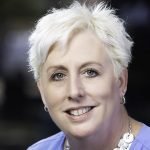Be willing to share both wins, losses, lessons, and vulnerabilities.
Stephen Snyder
Stephen Snyder is a graduate of Mercer University in Macon, GA where he played D1 baseball. Upon graduating from college in 2008, like many, was trying to find an opportunity in the real world. In the midst of the economic recession, he found himself as an “accidental seller” and stumbled into the insurance industry working as a carrier rep for a large voluntary benefits insurance company. Like many, insurance wasn’t something he grew up wanting to do. As he advanced within the industry he saw where the coverage provided could really help people. After spending more than 10 years in the southeast, Stephen & his wife moved to Dallas, TX to follow/begin her career as a Pediatric Nurse Practitioner in November 2020. When they arrived Stephen took his industry expertise, expanded his practice, and officially started his own insurance agency. Stephen now helps employee benefits brokers to simplify the voluntary benefits process to ensure they can provide their clients the best options.
If you’re a benefits broker and are struggling with a strategy for creating/implementing voluntary benefits through your existing book/new prospects or feel like your current process of keeping it all in-house isn’t working, you are not alone.
Thank you so much for doing this with us! Can you tell us a story about what brought you to this specific career path?
Stephen Snyder: After graduating from college, like many, I began my career search. But with it being 2008 in the middle of an economic recession finding a job proved to be challenging. There were three main industries that presented themselves: financial sales, insurance sales, and yellow book sales. Yes, yellow book. Does anyone even get those anymore?! After going through interview processes I talked with a friend that been selling insurance and felt it best to move back home to KY from GA to start in the insurance industry; mostly because if he could do it, so could I! So I began my career with this little insurance company called Aflac.
It provided many great opportunities for freedom, professional growth, and helping others so I stuck with it. After spending 7 years in my home state of KY, my now wife & I (who are dating long distance at the time) decided to move to Atlanta. After 4 years in Metro Atl, she had the opportunity to open up in Nashville in fall 2019 with bigger plans after she graduated from Pediatric Nurse Practitioner school in May 2020, so we packed up & moved to the Music City. Little did we know, as well the rest of the world, a pandemic was about to happen and how much that would impact the world; including the pediatric world.
Children’s hospitals either stopped hiring or slowed hiring because children were not being active, doing kid stuff, and going to the hospital. Budgets had been cut. Luckily for us, Children’s Medical Center of Dallas never stopped hiring and she received an offer to move us to TX! In moving here, I decided I was going to start over within my industry sector and open my insurance agency; The Snyder Benefits Firm. I saw an opportunity to provide multiple solutions for broker partners and their clients & really be their one-stop solution for what our industry calls “voluntary benefits”.
Is there a particular person who you are grateful towards who helped get you to where you are? Can you share a story?
Stephen Snyder: 2 people really: Mark Galvin. He was a friend from home that was in insurance and talked to me about the opportunity of being in the insurance industry. He & I worked side by side for 7 years. Brock Powell: He is who ultimately hired me. But when he moved back to GA from KY he took a chance on me to manage a larger sales team and territory of Middle Georgia.
What are the most common mistakes you see entrepreneurs make and what would you suggest they do?
Stephen Snyder: Underestimate the challenge it will be. I would guess most are starting a business within an industry they know well, which, is likely why they took the leap. Because of that, we may feel like we know exactly what we need to do. While that may be the case, there may be nuances here and there that we miss.
First, know that it is ok! You’re going to make mistakes. Secondly, there will be times that you question whether you made the right decision. Most importantly,, surround yourself with good people. When you’re starting out you may be solo and not used to that. So it can be lonely. Have good people: industry connections, mentors, friends, family, etc that you can talk to. Someone outside of investors (if you had any) or attached to your specific business. Because there will inevitably be some downs or outright slumps, it’s important to be able to talk to people that aren’t financially incentivized on your success to help you through it.
Has the pandemic and transitioning into mostly online shopping affected your company positively or negatively?
Stephen Snyder: Not necessarily online shopping in a sense, but the way businesses and their employees purchase their insurance has changed. The insurance industry had to drive 100 MPH through 2020. There were a lot of agencies, carriers, etc that did things entirely in-person face to face or even still used paper to enroll; even though the technology was available. The industry had to pivot quickly. But the awareness and need for the products themselves were increased.
More and more businesses were thinking about what benefits they offered to their employees. What’s covered, what’s not covered. So being the “voluntary, supplemental” employee benefits industry (where the insured is paid cash directly as the result of a covered illness/injury) people wanted to know how their deductible was going to be taken care of if they were hospitalized. Or where would the money come from to pay their everyday bills? These products were providing peace of mind if something were to happen
You are a successful business leader. Which three character traits do you think were most instrumental to your success?
Stephen Snyder: Expanding beyond just DFW & North Texas. Increasing our reach throughout not just Texas, but the Midwest & Southeast,
Marine Corps Leadership Principles: The Qualities Every Leader Must Honor
When you think of your company, 5 years from now, what do you see?
Stephen Snyder: My answer would be:
- Grit. That might even be 1-3. I mentioned earlier many underestimate the challenges they may face. I wasn’t any different. I underestimated how hard it would be. But I knew I knew my stuff and that I could bring value to agencies & their clients. So I knew sticking with it would be worth it
- Optimism. I can struggle with this. It can be easy to beat yourself and think the worst. But remember the bigger picture and the task at hand. Here, I’d suggest finding books or podcasts that can maintain a positive outlook
- Be a learner. Not sure if that’s necessarily a character trait specifically, but continue learning. If you make a mistake, what did you learn from it? Is there someone else in the industry that you can follow on social media? Books, podcasts, etc. There are so many ways to continue learning
What have you learned about personal branding that you wish you had known earlier in your career?
Stephen Snyder: Be willing to share both wins, losses, lessons, and vulnerabilities. I was talking with a few people in the last month or so that have done very well with their personal brands via LinkedIn specifically and the common theme was not touting how much they knew, though that helped, it finding ways to relate.
I’ve always prided myself on being very knowledgeable, but that did not always translate to wins. When I started connecting with people, I noticed more opportunities opened up. As much more of an introvert, that admittedly is guarded, that’s tough to do. I am not used to actively trying to draw attention; that’s uncomfortable. In fact a little scary. I am used to deflecting, not putting myself out there, and doing those other things that let people and give them a chance to connect with me
How would you define “leadership”?
Stephen Snyder: Being others-centered. It’s not always about you “the leader” if you are heading up a business, a sales team, whatever. You have to set the vision but it takes buy-in from others. So if you don’t know them or it comes across that you don’t care to know them, they won’t buy into you; even if they buy into the vision.
Do you think entrepreneurship is something that you’re born with or something that you can learn along the way?
Stephen Snyder: Both. If you had asked me in high school if I would’ve been an entrepreneur, I probably would’ve said no. There are certainly those that were born with and live & breathe the entrepreneurial spirit. But I believe, like most things, you can learn it. If you see a niche for a product or service, then you have the spirit, even if you haven’t acted on it yet. Yet being the keyword.
What’s your favorite “business” quote and how has it affected your business decisions?
Stephen Snyder: “You don’t have to be great to start. But you have to start to be great”- Zig Ziglar.
I have that written on my whiteboard. I’d seen the quote for a long time, but early this year I had a little slump & it was causing me to be a bit of a perfectionist and it hit me between eyes & really clicked. You may call on strangers daily and want to speak with you, some will say yes, some will say no and unfortunately, some will not be nice about saying no. Knowing that you can be told no and someone may not business with you is nerve-wracking. So understanding that it’s a process and starting is part of the process. You will improve as time goes. But you don’t have to be perfect.
This interview was originally published on ValiantCEO.
Victoria Reaves
I'm Victoria Reaves, a dynamic writer and researcher deeply passionate about exploring the realms of technology innovations, environmental sustainability, and educational advancements. With my background in environmental science and a love for storytelling, I delve into captivating narratives that connect the dots between the past, present, and our vision for a sustainable future. Through my writing, I aim to inspire readers to adopt sustainable living practices while delving into the fascinating intersections of technology, history, and education. Join me on this journey of discovery and empowerment as we navigate the ever-evolving landscape of innovation and sustainability.





